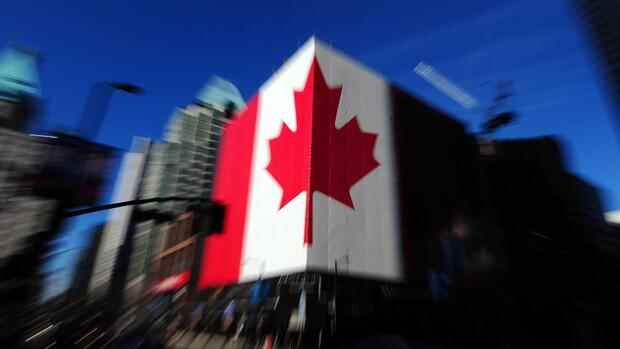It is no coincidence that the chancellor and his deputy are heading to Canada together. If Germany could envision an ideal trading partner, it would pretty much match Canada’s image: a decidedly liberal society, a strong democratic culture, the number nine largest economy after all – and blessed with huge natural resources on top of that.
It is all the more incomprehensible that the EU – also because of German resistance – was not able to conclude the free trade agreement (Ceta) with Canada for years. Now there seems to be a turning point. The Ukraine war, Russian imperialism in general and China, which is increasingly power-political and arbitrary, have promoted insights.
The decisive one: trade among like-minded people on the basis of common values and a common understanding of the law is not only easier, but ultimately also more sustainable. In times of “friendshoring”, the Ceta blockade seems downright unworldly.
No business perspective, no matter how nice, is worth it for an economy to become completely dependent on arbitrary autocracies – this applies to Russia when it comes to energy and it is perhaps even more true in the case of China, where German companies in many cases make more than half of their sales generate.
Top jobs of the day
Find the best jobs now and
be notified by email.
The fact that Robert Habeck and Olaf Scholz are traveling to North America to not only promote bilateral trade, but above all to strengthen the energy partnership, is an important signal – also to Moscow and Beijing.
An alliance among democracies, as demanded by US President Joe Biden, does not mean breaking with autocratic systems. From a German perspective in particular, that would be economic suicide. But at least it means shedding the naivety with which the federal governments have pursued foreign trade policy, especially towards Russia and China, for at least the past three decades.
In order to be able to act again in foreign policy, Europe’s largest economy must reduce its dependence on these autocracies. A rapprochement with those countries that stand for Western values is, to a certain extent, a geopolitical as well as a geoeconomic imperative. This includes Canada in the forefront.
“Change through trade” is no longer the order of the day, but the goal must be to create sustainable trade by changing the German position. The focus should no longer be on an exclusive and one-sided consideration of the opportunities offered by global networking, but on a thorough analysis of the risks.
More: Germany is planning a hydrogen agreement with Canada. LNG delivery is unlikely, but LNG infrastructure could help
